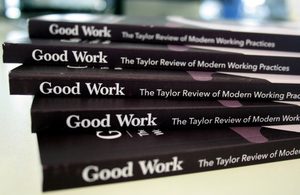 An event I chaired this week prompts me to ask – is concern about global warming getting lost in an alphabet soup of new initiatives?
An event I chaired this week prompts me to ask – is concern about global warming getting lost in an alphabet soup of new initiatives?
Try and make sense of this…. The G20 has asked the FSB to look at GHG emissions, so they’ve set up the TCFD which is working with CDP, SASB and CDSB on new reporting guidance – that BEIS could make mandatory.
Full marks if you got all the acronyms right, you are well up to speed. For everyone else, here’s a plain English translation.
Governments around the world are increasingly taking the risks posed by run-away climate change seriously. However they worry that the financial system has got its head in the sands, ignoring the likely impact of the big policy changes they are making in trying to shift the economy to a path compatible with 1.5 – 2 degrees of global warming. If so, current asset values could be massively overstated – anything upwards from $4.2 trillion according to one estimate – and a repeat of the global financial crash is possible when reality hits home. That matters to you and me because our pension savings are at risk.
So they want companies to start estimating the financial implications of their climate-related risks and opportunities and to disclose them in annual reports in a way that investors can act on. A taskforce headed up by Bank of England governor, Mark Carney, and former New York mayor and eponymous business data provider, Michael Bloomberg, has created a set of reporting guidelines. These are voluntary for now, but the UK’s business department is said to be supportive of adding them to the existing rules about reporting greenhouse gas emissions if the uptake is slow.
Acronyms aside, the danger is this becomes just another reporting requirement, with Continue reading







 Think of business involvement in politics, and the murky world of backhanders and behind-the-scenes lobbying may spring to mind. However, define the issue as protecting basic freedoms –the sort of freedoms that companies need if they are to prosper in open and competitive markets – and a different perspective emerges.
Think of business involvement in politics, and the murky world of backhanders and behind-the-scenes lobbying may spring to mind. However, define the issue as protecting basic freedoms –the sort of freedoms that companies need if they are to prosper in open and competitive markets – and a different perspective emerges.

